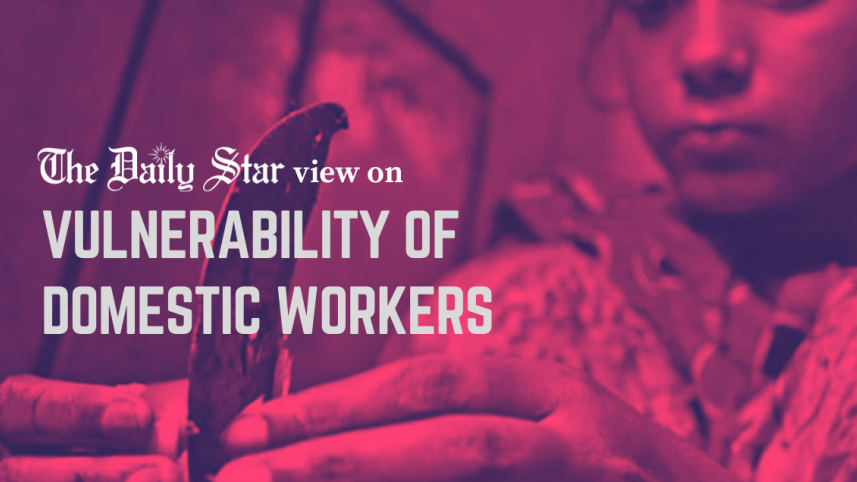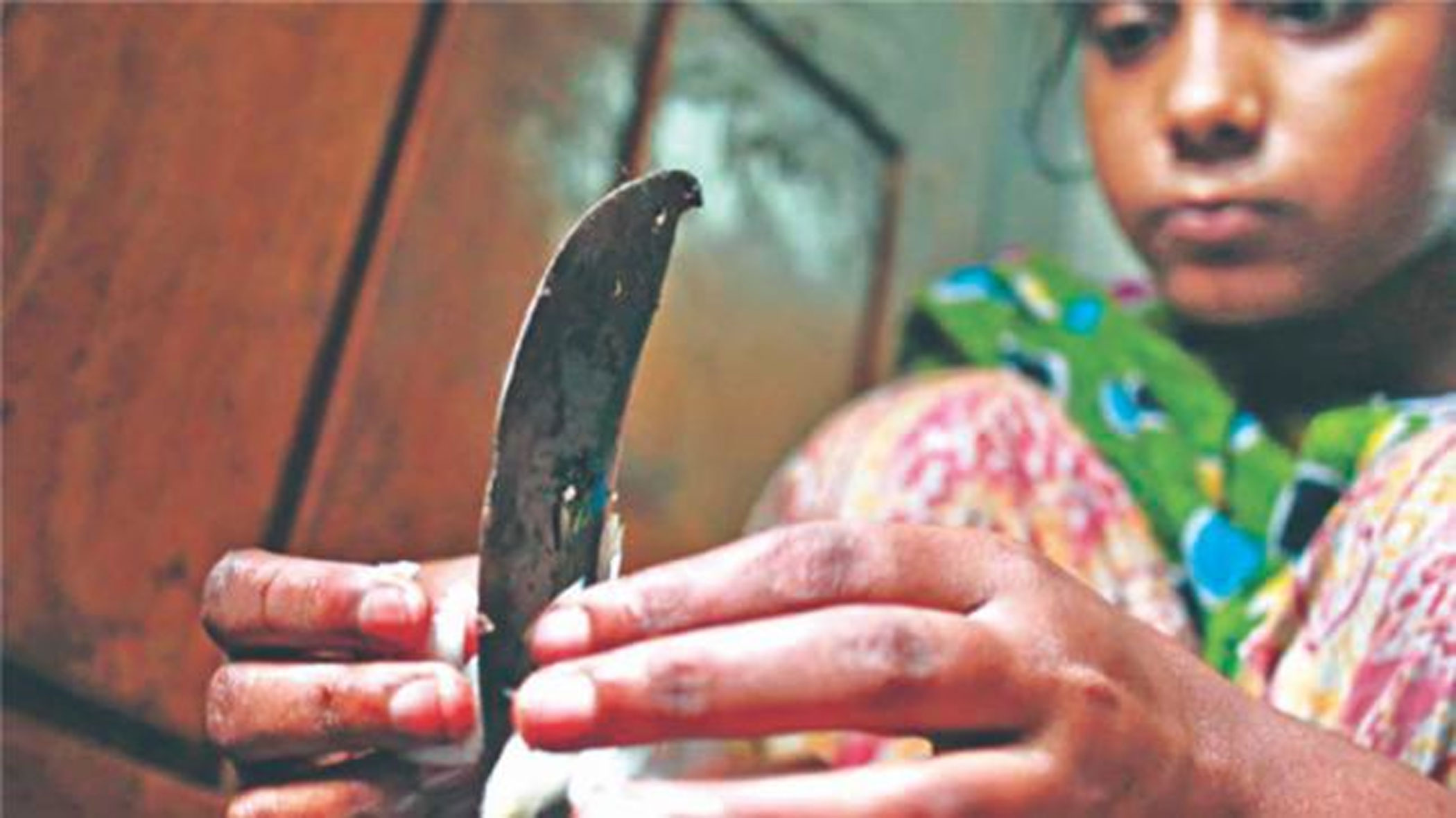Who will protect the unprotected?

We are appalled by the news of torture of a 12-year-old domestic worker in Jashore. She was reportedly subjected to various forms of verbal and physical abuse at the hands of a couple over a period of nine months. Unfortunately, the case of the 12-year-old is one of countless such incidents that showcase the inhumane conditions under which domestic workers in our country are forced to work, in the absence of a proper policy framework and lack of goodwill from relevant stakeholders to implement concrete changes.
A recent study by the Bangladesh Institute of Labour Studies and Dnet revealed that domestic workers are subjected to various forms of abuse, including sexual abuse (four percent), physical abuse (21 percent), mental abuse (67 percent), and verbal abuse (61 percent). But the sad reality is that an alarming 95 percent workers do not report any case of abuse. Many struggling parents send their children to work as domestic workers in the hopes that at least their meals will be covered, which means many don't have stable households to return to and are forced to tolerate the torture. Additionally, they either don't know who to reach out to for support, or don't believe the justice system can help someone in their economic position.
Domestic workers, constituting mostly women and children, are considered one of the most vulnerable and marginalised groups in our society. It is alarming that we do not have any comprehensive law to protect them, other than the Domestic Servants' Registration Ordinance of 1961 which states that domestic workers in five metropolitan areas of Dhaka must register with the police. Although the Domestic Worker Protection and Welfare Policy was formulated in 2015, it is not legally binding, which may explain why we haven't seen any real results yet. The stakeholders of this policy – domestic workers, employers and law enforcers – are unaware that any such policy exists. It is extremely disheartening to see that the central monitoring cell, which was established three years ago under the labour ministry to oversee implementation of the policy, failed to convene a meeting even once during this time.
Meanwhile, the policy itself is not watertight. In fact, just last year the High Court condemned the policy for being "incomplete" and "vague" as it did not specify the amount of compensation for victims of violations, payment method, number of leave days, and appeal process for domestic workers who were denied leave.
It is high time the government took urgent steps to address the gaps in the policy, as suggested by the High Court, and ensure that it is implemented in collaboration with relevant stakeholders. It must also guarantee that law enforcement and the legal system provide necessary services to domestic workers if they are subjected to abuse. Meanwhile, NGOs and rights activists should focus on raising awareness among domestic workers regarding their rights and compensation. The government should also focus on establishing a minimum wage for domestic workers and sensitise law enforcement to better handle such cases.



 For all latest news, follow The Daily Star's Google News channel.
For all latest news, follow The Daily Star's Google News channel. 

Comments